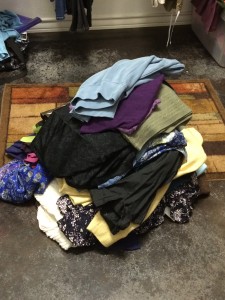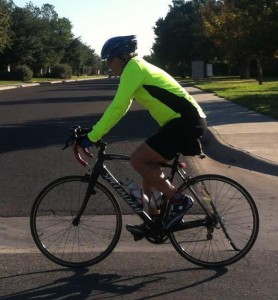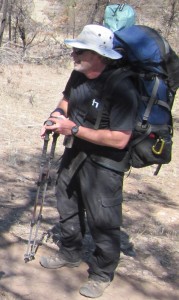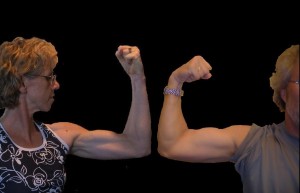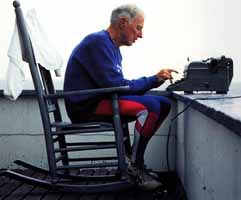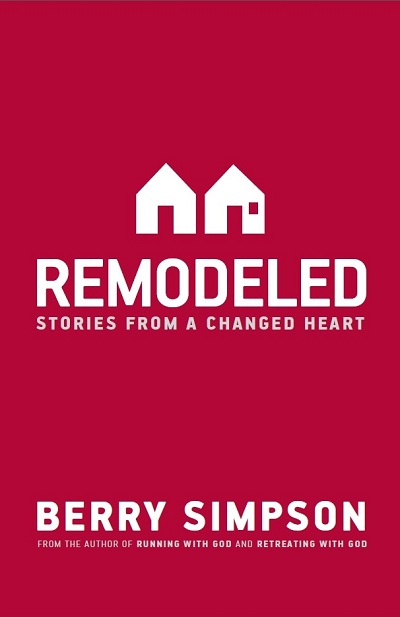It used to bug me that I couldn’t pull an all-nighter training session and run a marathon the next weekend. No, I had to set aside weeks, months, of consistent training. I had to keep working it.
I wanted it to be more like my university days when I passed Economics class with a couple of strategically-timed all-nighters. Of course, just because I passed the class doesn’t mean I remember much about economics. Anything I learned in those all night sessions has frittered away except for “guns and butter” and “no free lunch.”
Why can’t I become a faster longer runner right away, like in the Matrix. Just plug the cable into my neck and upload endurance and speed. And why can’t I become a better cyclist using the same technique.
Why can’t I morph into skinny-yet-strong flatbelly overnight? Why does everything I want to do, at least everything of value, take so long?
Erwin McManus wrote (The Artisan Soul), “For our lives to be a work of art, we need to allow a lifetime of work. We must press close to God. We must be willing to take the time and risk the intimacy required for creating an artisan life.”
If we want to be valuable to God and to the people around us we have to keep putting in the work to improve. George Sheehan wrote, “Training is not like money. You cannot put it in the bank and save it. You have to go out continually and fight again and again for the desired improvement.”
It turns out this is also true about relationships. Even the closest relationships die without constant attention. The most heartfelt “I love you” fades away from memory if it isn’t repeated regularly.
It doesn’t seem fair. Why is life that way? Because humans leak. Just like the tires on my bicycle, which lose air slowly and will be completely flat if I don’t add air each time I ride, we humans leak our hard-earned fitness, we leak our fought-for endurance, we leak knowledge about economics, and we leak the assurance that we are loved. And not only do we leak, but because we live in a fallen and broken world, we are constantly under attack by the voices that tell us to sit down and give up.
But here’s the thing … it is the work itself that changes our lives. It is the long training sessions that change us from couch potato to athlete. It is the deep conversations with those we love that change our heart.
In a couple of weeks I will hike Guadalupe Peak with a busload of Iron Men, and it will be a hard day. The hike is eight miles roundtrip, with a 3,000’ increase in elevation. And since the trailhead is above 5,000,’ we are out of breath just getting off the bus.
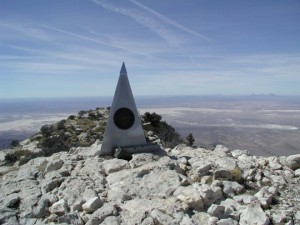 I’ve made this hike at least fifteen times, and about halfway up I usually remember that there were early plans to build a tram to the top. So anyone could ride the tram to the highest point in Texas and enjoy the view without having to complete the difficult hike. While I’m hiking and trying to protect my knees and struggling to breathe, the tram proposal seems a pretty good idea. But in fact, if we rode to the top, all we’d get for the day would be the view. We wouldn’t experience the life-changing friendships born of shared struggle, or the strengthened self-image from a hard job well done, and we certainly wouldn’t have any stories to share on the drive home.
I’ve made this hike at least fifteen times, and about halfway up I usually remember that there were early plans to build a tram to the top. So anyone could ride the tram to the highest point in Texas and enjoy the view without having to complete the difficult hike. While I’m hiking and trying to protect my knees and struggling to breathe, the tram proposal seems a pretty good idea. But in fact, if we rode to the top, all we’d get for the day would be the view. We wouldn’t experience the life-changing friendships born of shared struggle, or the strengthened self-image from a hard job well done, and we certainly wouldn’t have any stories to share on the drive home.
Again, from Erwin McManus, “Artists understand that the process of fermentation cannot be rushed or hurried. They know that the products they are committed to creating will not happen if they take short cuts or circumvent the process.” (He was comparing our lives to baking bread.)
The coolest part of this, I no longer see this idea of long-term training requirements as a bad thing. It doesn’t frustrate me (as much). Because I know that if I keep working … working at running and cycling, working to improve my writing, working to be a better supporter and lover to Cyndi Simpson … I will be. For all of us, it means our future can be better and deeper. If we get to work.
“I run in the path of Your commands, for You have set my heart free.” Psalm 119:32
You can find more of my writing at www.berrysimpson.com, or www.twitter.com/berrysimpson, or http://www.facebook.com/berry.simpson







